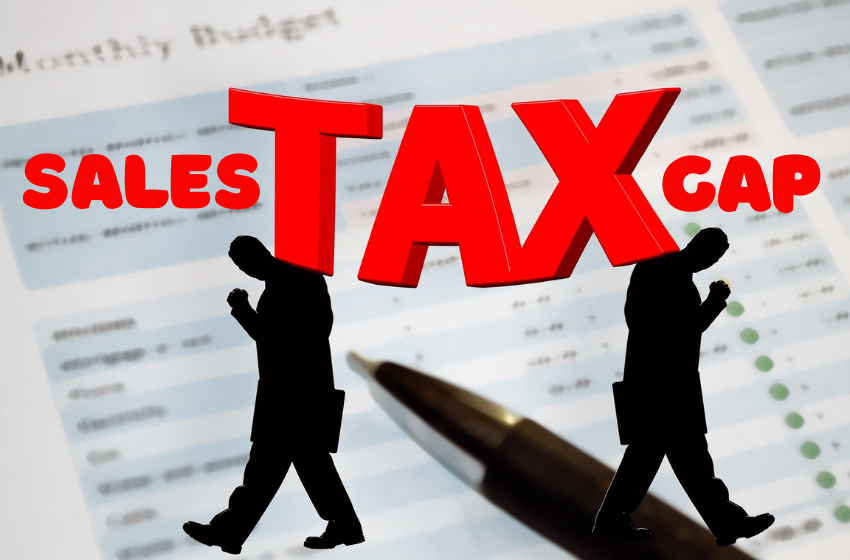
FBR Admits Rs3.6 Trillion Sales Tax Gap in Pakistan
The Federal Board of Revenue (FBR) has admitted that Pakistan faces a sales tax gap in Pakistan of Rs3.6 trillion, a figure almost equal to the country’s actual collection of Rs3.9 trillion last year. Officials admitted the shortfall cannot be fully bridged because the retail sector is fragmented and largely informal, resisting tax enforcement.
The FBR recently shared its latest assessment with the Prime Minister’s Office. It revealed that the retail sector alone contributes a gap of around Rs310 billion, highlighting the scale of the challenge in collecting taxes fairly across industries.
Enforcement and Protests from Traders
The FBR collected Rs874 billion last year through enforcement measures. However, the authority has not shared the detailed breakdown of this figure despite requests from media.
At the same time, tensions between the FBR and traders are growing. In Lahore, a businessman accused tax officers of harassment. The Lahore Chamber of Commerce and Industry launched a protest, and its president demanded the transfer of a chief commissioner while warning he would resign by October 1 if no action followed.
Read Also: Foreign Investment in Pakistan Drops by 22%
Multiple Attempts but Limited Success
For years, successive governments have tried to bring the retail sector into the tax net. Steps included restricting large purchases, offering higher salaries, and even giving perks like cars to tax officials. Despite these incentives, the problem remains.
The FBR now argues that taxmen can enforce collection better at the manufacturing stage since manufacturers withhold most taxes. Authority is also developing digital tools, such as electronic invoicing and cargo tracking, to improve visibility across supply chains.
However, critics point out that some recent policies have undermined digital initiatives. For example, the acceptance of cash deposits in banks as “digital transactions” weakened the FBR’s effort to discourage large untaxed cash dealings.
Sector-Wise Sales Tax Gap in Pakistan
The FBR assessment showed where the largest sales tax gaps exist:
- Textile sector: Rs814 billion (the biggest gap, almost one-fourth of the total).
- Petroleum and food products: Rs384 billion each.
- Chemicals and fertilizer: Rs326 billion.
- Iron and steel: Rs200 billion.
- Electronics: Rs193 billion.
- Beverages: Rs101 billion.
- Sugar sector: Rs46 billion (despite receiving heavy monitoring).
This breakdown highlights that some of Pakistan’s largest industries remain under-taxed, while enforcement appears uneven.
Revenue Collection and IMF Commitments
In the last fiscal year, the FBR collected Rs11.74 trillion in total taxes, falling short of its target by Rs1.2 trillion, even after record new taxes were imposed.
Interestingly, the claimed Rs874 billion from enforcement was higher than the Rs805 billion raised through new taxes. Officials said these enforcement efforts improved Pakistan’s tax-to-GDP ratio from 8.8% to 10.24%. They also expressed confidence that Pakistan would meet its IMF target of 13.7% revenue-to-GDP by June 2027, with FBR’s share projected to rise to 11.5%.
Read Also: Pakistan’s Recovery at Risk Without Bold Reforms: IIF
Digital Integration of Businesses
The FBR informed the PM’s Office that 12,805 taxpayers have registered with licensed integrators, representing a turnover of Rs33.3 trillion — nearly two-thirds of the total Rs51 trillion in national sales.
Officials also highlighted recent enforcement actions, including operations against jewellers and furniture shops in Faisalabad. So far, around 100 retail-level actions have been carried out across the country, often with the help of magistrates and police.
The Road Ahead
Pakistan’s revenue system remains under severe pressure. While enforcement actions and digital reforms show some progress, the Rs3.6 trillion sales tax gap in Pakistan reveals the scale of the problem. Unless the government manages to bring the retail sector into the formal tax net and strengthens its digital systems, the dream of achieving long-term fiscal stability will remain difficult.









